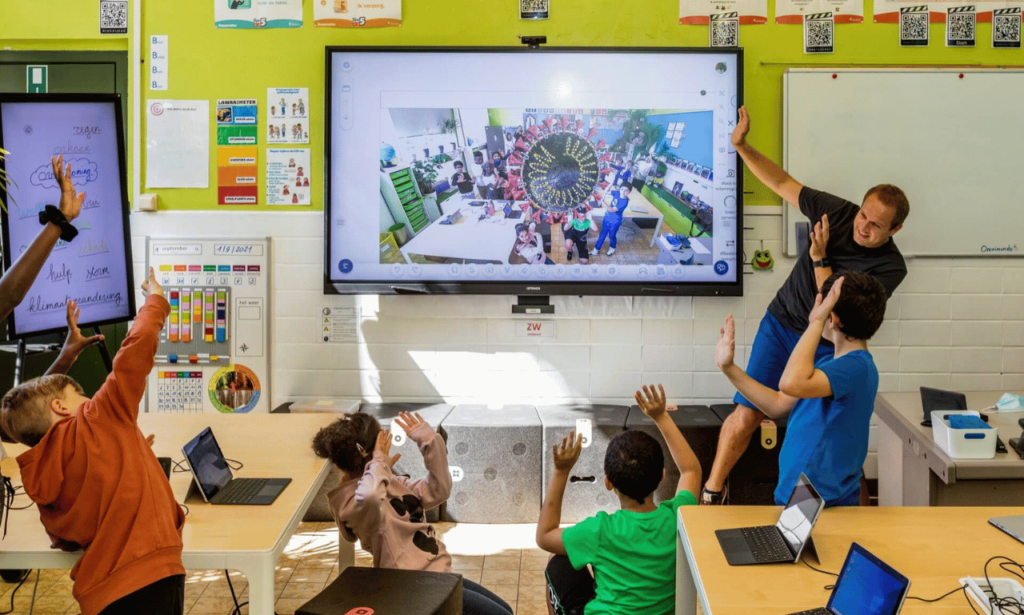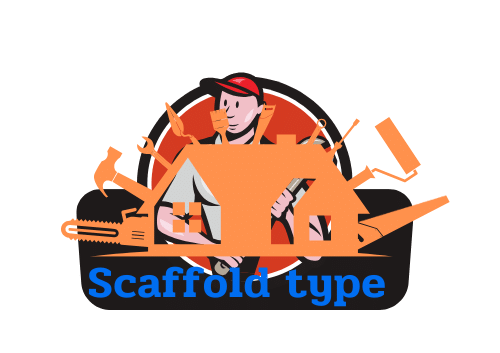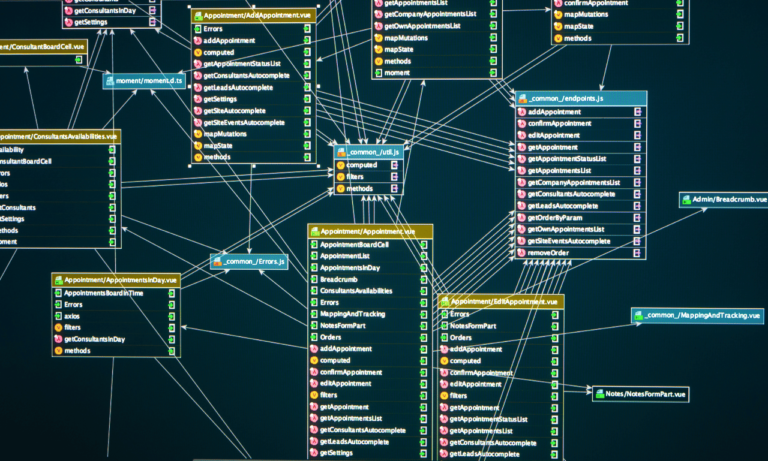Phone:
(+65)8319-0742
Discovering the right blend of learning support strategies can be a game changer for students striving to excel academically. As adult learners often juggle work, family responsibilities, and education, the need for effective study habits and learner-centered approaches becomes imperative. Academic assistance methods are not one-size-fits-all; they are nuanced and adaptable to individual circumstances. Institutions renowned for their flexibility, like Penn LPS Online, champion these strategies, offering high-quality Ivy League education curated specifically for working professionals seeking to develop personal and career trajectories.
Key Takeaways
- Dedication and self-discipline are at the heart of successful learning support strategies.
- Effective study habits tailored to adult learners can lead to profound personal and professional growth.
- Learner-centered approaches in education are critical for accommodating work and family life.
- Academic assistance methods can be customized to suit individual learning needs and schedules.
- The strategic use of technology and resources can greatly assist in achieving educational goals.
- Finding a learning environment that supports flexibility, like Penn LPS Online, is key for adult learners.
Unlocking Academic Potential Through Learning Support Strategies
The quest for educational excellence is multifaceted, necessitating innovative academic success techniques that align with diverse learning preferences. Constructive classroom support strategies and personalized learning aids have emerged as lifelines for students seeking to break the barriers to their academic potential. These resources empower students by acknowledging unique challenges, particularly for working adults striving for academic advancement alongside their professional and personal commitments.
Fostering an environment conducive to learning, these strategies lay the groundwork for a culture of sustained academic curiosity and success. Through the strategic integration of personalized learning aids, students are afforded the luxury of custom-tailored educational resources that resonate with their individual learning styles, needs, and goals.
- Techniques that leverage modern technology to keep students engaged.
- Supportive frameworks that enhance understanding and retention.
- Aids designed to streamline the learning process for efficiency.
Adopting a holistic view, the right classroom support strategies capitalize on the strength of collective knowledge and community learning. They not only sharpen individual acumen but also foster a collaborative learning space. This is particularly evident in group discussions and projects that encourage peer-to-peer learningâa crucial component of practical academic development.
| Learning Aid | Type | Benefit |
|---|---|---|
| Interactive Study Apps | Technology | Engages students through gamification and interactive challenges. |
| Customizable Flashcards | Study Tool | Allows for tailored revision sessions to focus on weak areas. |
| Flexible Online Tutorials | Resource | Provides in-depth exploration of topics at a self-determined pace. |
| Adaptive Assessment Software | Technology | Tests knowledge and adjusts difficulty based on student performance. |
In essence, the strategic employment of academic success techniques intertwines with the fabric of student empowerment, driving progress and self-improvement. A judicious choice of classroom support strategies and personalized learning aids can lay a solid foundation for a lifetime of educational success and fulfillment.
Incorporating SMART Goals for Educational Advancement
In the pursuit of academic excellence, setting clear and achievable objectives is fundamental. The SMART framework is a proven methodology that tailors educational interventions to facilitate student growth. By conceptualizing goals that are Specific, Measurable, Attainable, Relevant, and Timely, students can carve out a pathway to success that is both strategic and manageable.
Understanding the SMART Framework
SMART goals form the cornerstone of effective study habits, providing students with a robust structure to outline their educational journey. Each element of the SMART acronym works in concert to encourage a disciplined and focused approach:
- Specific: Clear and precise goals mitigate confusion, directing energy towards desired outcomes.
- Measurable: Quantifiable milestones enable students to track progress and stay motivated.
- Attainable: Realistic goals foster a sense of achievement and encourage perseverance.
- Relevant: Aligning goals with personal and academic aspirations ensures commitment to the educational process.
- Timely: Time-bound objectives instill urgency and promote time management.
As learners integrate these facets into their study plans, they effectively employ classroom support strategies that can result in enhanced academic proficiency.
Real-life Application of SMART Goals for Adult Learners
Adult learners are uniquely positioned to benefit from the specificity that SMART goals offer. Balancing multifaceted roles often necessitates a framework that accommodates both educational and personal responsibilities. For instance, earmarking one hour each evening solely for reviewing class materials can instill a habit of consistency. Furthermore, leveraging interactive learning tools and digital resources serves as a tactile way to uphold such commitments.
- Review Progress: Utilizing applications to log study hours and monitor task completion keeps learners on track.
- Flexible Learning: Incorporating adjustable educational interventions allows adult learners to adapt to unforeseen life events without derailing their academic endeavors.
- Support Networks: Connecting with peers through study apps or forums can provide reciprocal motivation, reinforcing effective study habits.
Ultimately, the SMART framework propels learners towards their objectives by harmonizing their academic pursuits with life’s demands, creating a sustainable balance that supports long-term educational advancement.
Optimizing Time and Resources for Student Success

Mastering the art of time management is an essential component in the toolbox of student success techniques. Balancing academic responsibilities with life’s other demands requires a methodical approach to using time efficiently, emphasizing the need for actionable classroom support strategies and interactive learning tools.
Effective Time Management Techniques
One foundational aspect of achieving academic excellence is the implementation of robust time management practices. This does not only involve juggling schedules but also understanding when one is most productive and aligning study sessions to these high-energy periods. Here are some strategies for effectively managing your time:
- Developing a prioritized task list to tackle critical assignments first.
- Establishing consistent study routines to fortify learning habits.
- Breaking larger projects into smaller, manageable tasks to prevent overwhelm.
- Utilizing breaks in the day for quick revision or flashcard reviews.
- Reserving buffer time for unforeseen events or challenging study material.
Choosing the Right Tools and Technology for Academic Support
Leveraging the latest in technology, students today have an array of interactive learning tools at their fingertips. These tools help streamline the learning process and better structure study times. Selecting the most compatible tech should be a deliberate choice, guided by one’s learning preferences and the nature of the academic program.
| Technology Type | Benefits | Examples |
|---|---|---|
| Digital Planners | Centralize assignments, deadlines, and notes. | Google Calendar, Trello |
| Time Management Apps | Track productivity, set timers for focused study sessions. | Pomodone, Forest |
| Study Apps | Interactive flashcards, practice quizzes, and collaborative tools. | Quizlet, StudyBlue |
| Educational Platforms | Access course materials and engage with peers and educators. | Canvas, Blackboard |
Incorporating these tools into daily study routines not only supports educational interventions but also empowers students to maintain control over their academic journey. By understanding and using supportive technologies, learners can optimize their time and resources, paving the way for success in their educational endeavors.
Navigating Course Materials for Maximum Engagement

Academic success hinges on more than just showing up to class; it’s a meticulous blend of learning support strategies that maximizes one’s academic journey. In the digital age, where virtual classrooms reign, the thoughtful interaction with course materials can significantly enhance a student’s learning experience. To truly engage and draw from the well of knowledge that online courses offer, students must employ a blend of academic assistance methods and develop effective study habits. Let’s delve into how a student can fully immerse themselves using these learner-centered approaches.
Utilizing Syllabi and Course Platforms
The syllabus serves as a roadmap for the academic term, detailing essential milestones and expectations. By taking the time to thoroughly review the syllabus provided on reputable platforms such as Penn LPS Online’s Canvas site, learners can strategize their studies to match the course’s pace and rigor. It is here that the interplay of planning and resource utilization coalesce, ensuring students never miss a critical deadline or overlook a key topic.
Course platforms serve as a hub for all learning resources, providing interactive learning tools that cater to diverse learning styles. These digital spaces are custom-tailored for engagement, helping students to interact with the content through multimedia resources, quizzes, and forumsâall designed with learner-centered approaches at their core. This multi-faceted engagement with course materials cultivates a proactive mindset central to mastering one’s studies.
Commitment to Class Attendance and Participation
As central as a syllabus may be, its true value is realized only with steadfast attendance and active participation. This translates to attending scheduled video lectures, participating in live meetings, and contributing to discussion boards. Such consistent involvement in the virtual classroom environment not only embeds knowledge but also fosters an academic community where ideas are exchanged freelyâaligning perfectly with academic assistance methods that champion student involvement.
Ultimately, it is the synergy between leaner-centered approaches and consistent application of effective study habits that elevates a student’s engagement with course materials. Leveraging these academic assistance methods ensures that learning transcends passive absorption and becomes a dynamic, interactive experienceâpreparing students for the real-world challenges they’ll face in their respective fields.
Building Collaborative Relationships for Enhanced Learning

In today’s dynamic academic landscape, fostering collaborative relationships is a cornerstone for enhancing the learning experience. Integrating student success techniques into one’s study routine can be significantly enriched by the support systems present within educational institutions. Let’s delve into how both instructors and peers play pivotal roles in creating a supportive and interactive learning environment.
Engaging with Instructors for Personalized Support
One of the critical classroom support strategies for achieving success is establishing a strong rapport with instructors. These connections pave the way for acquiring personalized learning aids that cater to individual academic needs. Instructors serve not only as educators but as mentors who can provide invaluable insights and constructive feedback. Through online platforms, students have the capability to interact directly with faculty, seeking clarification, discussing topics in depth, and receiving personalized academic support that aligns with their unique learning trajectory.
Creating and Leveraging Peer Support Networks
Moreover, peer interaction facilitates an exchange of diverse perspectives and provides a forum for mutual learning. By harnessing interactive learning tools, students can connect with classmates to form study groups, collaborate on projects, and engage in enriching discussions. These peer support networks not only reinforce academic concepts but also ensure a sense of community and shared responsibility, crucial for staying motivated and accountable throughout oneâs academic journey.
| Collaborative Element | Benefits | Tools & Strategies |
|---|---|---|
| Instructor Engagement | Access to tailored guidance, Clarification of complex concepts | Online office hours, Forums, Email correspondences |
| Peer Interaction | Shared knowledge, Increased accountability, Network building | Virtual study groups, Group chats, Collaborative platforms |
In summary, the integration of student success techniques and personalized learning aids through active engagement with educators and participation in peer networks provides a multifaceted approach that is vital for student development. Such classroom support strategies, bolstered by interactive learning tools, create a comprehensive environment conducive to academic advancement and long-term success.
Maximizing Success with Academic and Technical Support Systems
With the landscape of education continually evolving, educational interventions and robust support systems have become increasingly significant for student achievement. Comprehensive academic assistance methods and personalized learning aids play crucial roles in offering students the foundation for success. These resources not only aid in grasping complex concepts but also ensure that individual learning needs are met, thereby reinforcing effective learning support strategies.
Leveraging Advising and Tutoring Services
Advising and tutoring services are pillars of academic support, guiding learners through the intricacies of college life. Advisors are instrumental in providing counsel on course selection and elucidating degree requirements. Meanwhile, tutoring services can bridge gaps in understanding, allowing students to overcome academic hurdles. Institutions renowned for excellence, such as Penn LPS Online, provide these services as part of their commitment to student success.
24/7 Tech Support and Writing Assistance
In an age where technology underpins the educational experience, continuous technical support becomes indispensable. This provision ensures that students can study without the disruption of technological setbacks. Similarly, writing assistance supplements academic proficiency, giving students the tools to cultivate their writing skills crucial for their academic and professional futures.
| Support Offered | Benefits |
|---|---|
| Academic Advising | Customized course planning and academic strategies |
| Tutoring Services | Targeted help in challenging subjects, enhancing understanding |
| Writing Labs | Development of writing proficiency and academic integrity |
| Tech Support | Seamless online learning experience with minimal downtime |
Through the integration of these comprehensive educational interventions, students are empowered to navigate their course load effectively. Whether it’s through personalized tutoring sessions or the reliance on technology for uninterrupted access to learning materials, the goal remains unwavering: to maximize academic success by endorsing tailored academic assistance methods and learning support strategies for every learner.
Conclusion
The journey towards academic success is richly layered with various learning support strategies and student success techniques that serve as the bedrock for effective education. The insights shared throughout this article underscore the significant impact of combining effective study habits with a suite of personalized learning aids and interactive learning tools. Each component, from the might of SMART goals to the tailored approach of classroom support strategies, works synergistically to drive student progress.
Embracing learner-centered approaches enhances not only academic performance but also the overall well-being of students. The informed use of educational interventions and keen adoption of the cited techniques can transform challenges into stepping stones on the path to success. As students engage deeply with their course materials and tap into the collective wisdom of faculty and peers, they construct a rich tapestry of knowledge that is both comprehensive and adaptable.
Lastly, the strategic application of academic assistance methods fortifies a learner’s ability to navigate the complex landscape of higher education. The role of academic and technical support systems cannot be understated, as they provide essential scaffolding for every educational pursuit. By integrating these elements into their academic repertoire, learners are poised to achieve remarkable outcomes, reflecting the true essence of a sustainable and enriching educational adventure.
FAQ
What are learning support strategies and how can they aid in academic success?
Learning support strategies are a collection of methods and academic assistance techniques designed to enhance learning effectiveness and student success. These include effective study habits, learner-centered approaches, and personalized learning aids, tailored to address the unique needs and challenges of students. By providing structured support, these strategies equip learners with the tools necessary to comprehend and retain information, manage their time, and succeed in their academic pursuits.
How are personalized learning aids incorporated into academic support?
Personalized learning aids are tailored educational resources that cater to individual learning styles and needs, allowing students to learn at their own pace and in a way that is most effective for them. This may include customized lesson plans, one-on-one tutoring sessions, adaptive technology, and personalized feedback, all of which contribute to a more engaging and successful learning experience.
What is the SMART framework and how can it benefit students?
The SMART framework is a set of criteria for setting goals that are Specific, Measurable, Attainable, Relevant, and Timely. For students, applying the SMART framework means creating clear and actionable objectives for their academic progress, which can lead to a focused and structured approach to studying. By setting and achieving SMART goals, students can maintain motivation and better track their performance and growth over time.
Why is time management important for students, especially adult learners?
Time management is critical for students, particularly for adult learners who are often juggling multiple responsibilities such as work and family. Effective time management allows these students to allocate their time wisely, ensure they attend to all aspects of their life, and maintain a balance that promotes well-being and academic success. By strategically organizing their schedule, they can maximize their potential to achieve academic goals while fulfilling personal commitments.
How can students utilize syllabi and course platforms to enhance their academic experience?
Syllabi provide a roadmap for a course, detailing topics, assignments, and deadlines, which helps students plan and allocate study time effectively. Course platforms, such as Canvas at Penn LPS Online, offer centralized access to course materials, assignments, and communication tools that facilitate interactive learning and instructor engagement. Students can maximize their academic experience by using these resources to stay organized, on-track, and actively involved in their courses.
What are the advantages of engaging with instructors and participating in class regularly?
Engaging with instructors offers students personalized guidance and feedback essential for understanding course material and academic improvement. Regular class participation enables students to clarify concepts, participate in discussions, and get the most out of the learning experience. These interactions can lead to deeper comprehension, better academic performance, and the development of a rapport with instructors, which can be beneficial for networking and professional opportunities.
How do peer support networks contribute to student success?
Peer support networks provide a collaborative environment where students can share knowledge, resources, and encouragement. These networks foster accountability, help clarify course content through discussion, and support the development of effective study groups that enhance learning. Building connections with peers also creates opportunities for collaborative learning experiences and can contribute to valuable personal and professional relationships post-graduation.
What types of advising and tutoring services can students expect from academic institutions?
Academic institutions often provide a range of advising and tutoring services to support students’ academic journeys. Advising can assist with course selection, understanding degree requirements, and navigating academic challenges, while tutoring services offer focused help on subject matter and skill development. For example, Penn LPS Online offers chat-based tutoring and Writing Labs, which are designed to strengthen students’ understanding and performance in their courses.
Why is technical support crucial in online learning, and what can learners expect?
Technical support is essential in an online learning environment to ensure that students can access and navigate digital learning platforms without interruption. Many institutions offer around-the-clock assistance to handle any technical issues that arise, providing a hassle-free learning experience. At Penn LPS Online, learners benefit from 24/7 tech support and writing assistance services that help students overcome technical difficulties and improve their writing skills for academic success.

















